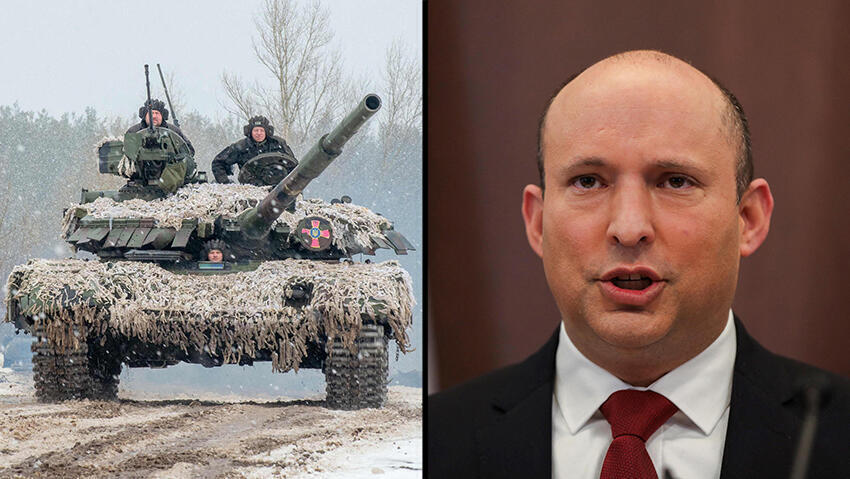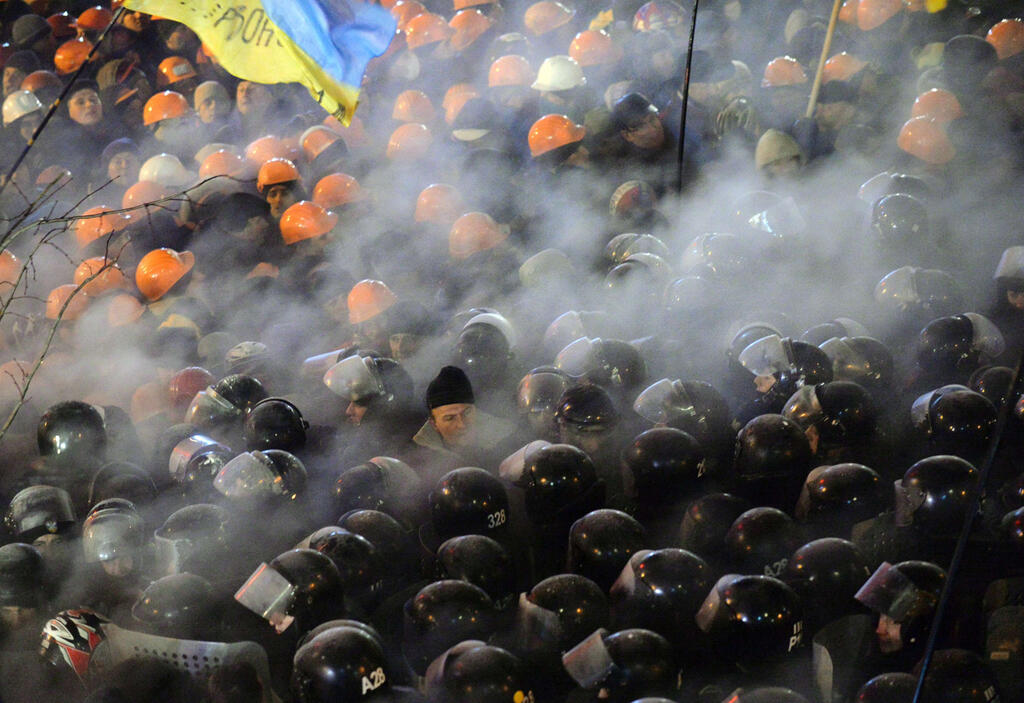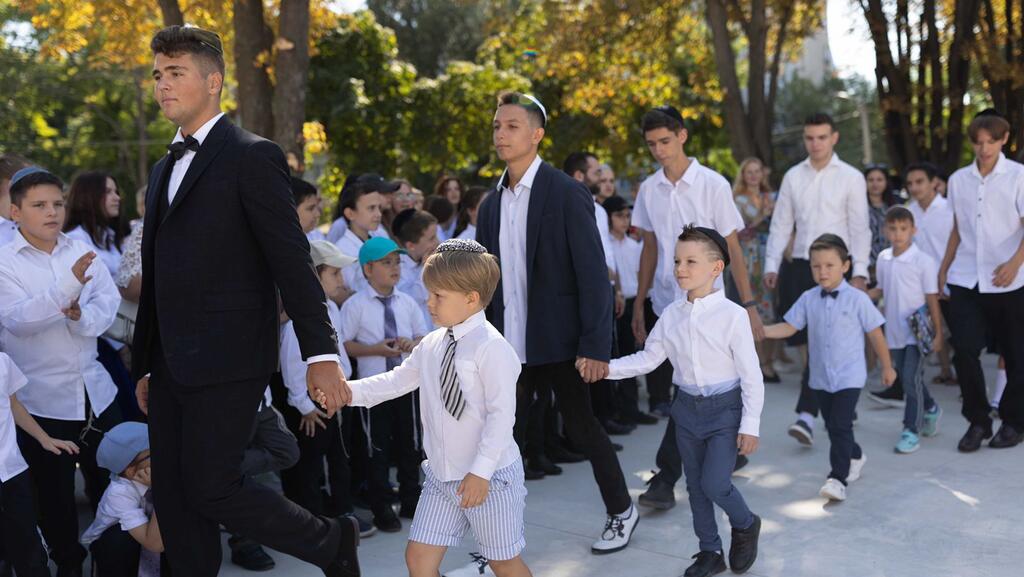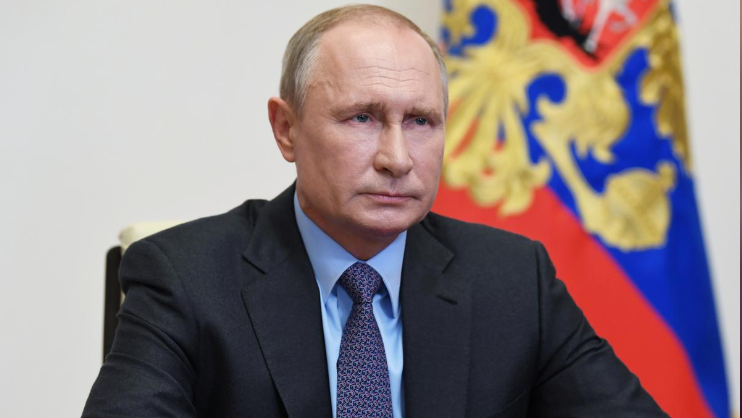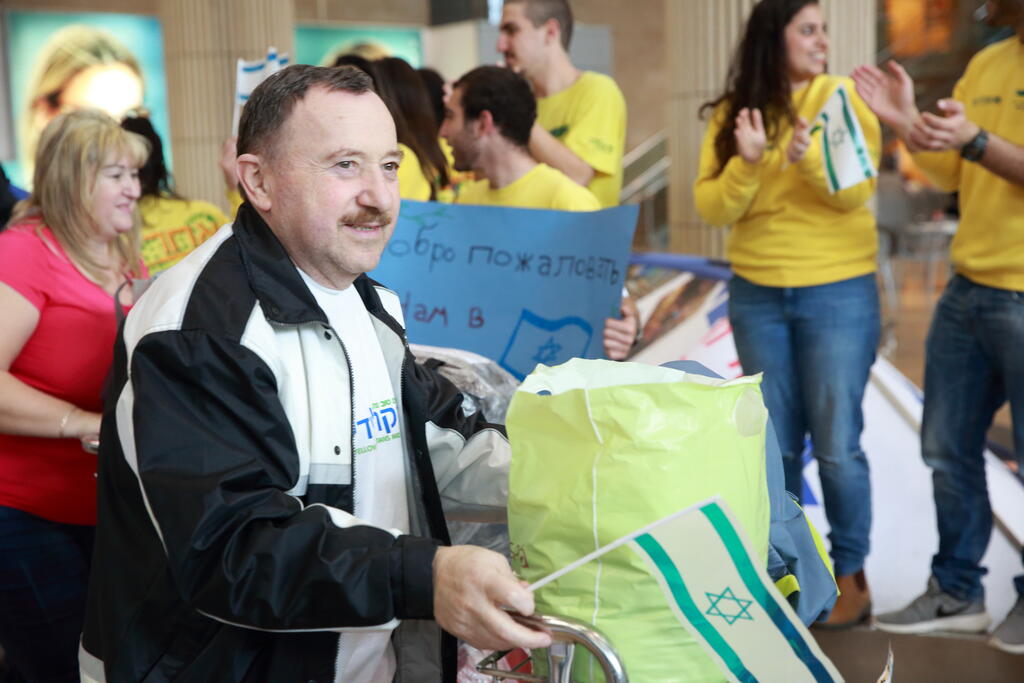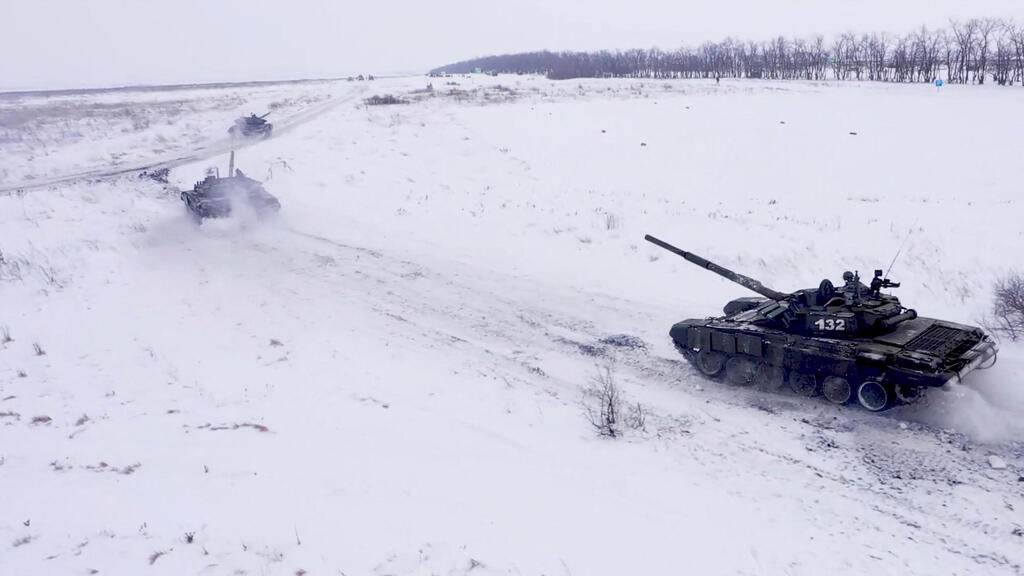Rising concerns of an impending Russian invasion of Ukraine in the coming days has expatriate communities in Israel carefully monitoring developments.
There are approximately 43,000 Jews currently living in Ukraine, with an estimated 15,000 Israelis in the country for various reasons, ranging from students to businesspeople. Over the weekend, Prime Minister Naftali Bennett ordered an increase in the number of flights to Israel from Ukraine in order to facilitate the speedy return of Israeli citizens.
“Do not take unnecessary risks. Do not wait for a situation in which you will very much want to return but will be unable to do so. Be responsible for your lives and leave Ukraine as quickly as possible and come home,” Bennett said at the opening of the weekly Cabinet meeting on Sunday in Jerusalem.
For several days now, the Israeli government has been urging its citizens to return home before a war erupts. Response up until Sunday was slow, signaling that many people were oblivious to the potential danger of a war breaking out in the region. But Army Radio on Monday reported that Israeli airlines were seeing an uptick in demand for seats on flights out of Ukraine.
Meanwhile, for many Israelis who have family in Ukraine that are not Israeli citizens, concern is mounting.
In the past, the Jewish community in Ukraine has been greatly affected by tensions with Russia. In the previous armed conflict, which erupted in 2014, many Jews living in border areas were displaced. Scores of them resettled in the capital, Kiev. Others left the country altogether, some immigrating to Israel.
There are hundreds of thousands of Ukrainian-born Jews living in Israel. Many of them left family members and friends behind.
“Those who are here, or in other countries such as Canada, are really concerned and are closely following the situation,” said Darien Shaul Roytman, a 42-year-old Israeli who was born in Ukraine. “Relatives there are projecting business as usual, that life is going on.”
Roytman and other members of his family are in regular contact with their relatives around Ukraine.
“If a war will begin, there is a chance that some of the Jews will want to leave,” he said.
Israeli media has reported that Ukrainian Jews have begun stockpiling water and food, in preparation for a Russian invasion. There have also been reports of Israeli-led evacuation plans for Jews who want to leave should war begin.
“My mother-in-law is telling us that everything is OK,” said Eddy Gazblit, a Ukrainian-born Israeli. “But that doesn’t calm us down, we are stressed, because we are sure [Russian President Vladimir] Putin will attack.”
Gazblit’s family lives in Donetsk, in eastern Ukraine on the border with Russia, and one of the focal points of the current conflict. He immigrated to Israel thirty years ago; his wife has been in the country for only three years.
“They don’t want to make my wife nervous, but she is very stressed and crying a lot,” he said... The family has purchased a generator and began filling large water tanks in anticipation of a water shortage, this has been their life since 2014,” said Gazblit. He says he would like them to come to Israel, but they have so far refused.
But there also are less-worried voices in the Ukrainian and Russian communities in Israel.
Tatyana Shalom immigrated to Israel ten years ago from Kharkiv, another Ukrainian city that borders Russia. Her parents are still there and she is in close contact with them. She is not worried.
“I don’t think there is anything to worry about at this point,” she said. Her mother is a doctor at a local hospital and has not been ordered to make any contingency plans.
“When I see the news, I get angry because the media is portraying a different picture. There is no panic and life is continuing normally,” she said.
Anna Zharova, CEO of the Israeli-Ukrainian Alliance, says that the media is playing a critical role in reining Putin and swaying Russia. As opposed to 2014, when Ukraine was largely isolated in the international community, the current international spotlight could pressure Russia to step back.
“Those who say there is an exaggeration in the media are not aware of what is really going on,” said Zharova. “There is a real feeling that things are happening, people are on edge and they are carefully monitoring the situation.”
Zharova has told her friends and family they can stay at her home in Israel if they decide to leave.
“They haven’t purchased plane tickets yet, but they all have plans in place,” she added.
The families here are used to being on the receiving end of such calls. When news bulletins are filled with footage of rockets fired from the Gaza Strip into Israel, it is their families in Russia asking them to leave.
“I get it,” said Gazblit. “People in southern Israel under attack do not leave their homes. It’s the same now in the Ukraine,” he explained.
“When people see war in Israel, they ask us to leave and we don’t want to, so I can understand it if people don’t want to leave their home,” said Roytman.
“I don’t think my parents will leave or come to Israel,” Tatyana Shalom said. “They are not at an age to start all over again.”
For some, there is concern of a rise in antisemitism during times of conflict. For family members in Israel, this is just another cause for worry. It is also testament to a complex situation. On one hand, people want to stay in their homes, and on the other hand, their identity and religious beliefs sometimes make them vulnerable.
“The Jews in the Ukraine and Russia usually prefer to remain neutral,” said Roytman. “There is a lot of antisemitism there to begin with. I am sure this will push more Jews to leave.”
Reports from recent years have demonstrated a reduction in anti-Semitic incidents in the country.
“Israel needs to do the maximum to try and stop the conflict between Russia and the Ukraine, as part of its commitment to the larger Jewish community,” said Zharova. “War will be a disaster.”
The story is written by Keren Setton and reprinted with permission from The Media Line


